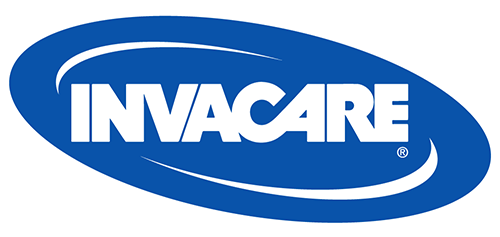ELYRIA, Ohio–(BUSINESS WIRE)–In response to President Bush’s FY 2008 budget proposal outlined February 5, 2007, Invacare (NYSE:IVC) applauded the Administration’s proposal to encourage seniors to have greater access to new home oxygen technology such as the Invacare® HomeFill™ oxygen system. According to an official Administration document, the President’s proposed budget to Congress would maintain payment for new oxygen technology at current levels, while decreasing payment for traditional oxygen systems from 36 to 13 months. While Invacare supports the Administration’s promotion of new technology, Invacare remains opposed to the proposal of further payment cuts to home oxygen therapy and power wheelchairs that may erode beneficiary access.
“The President clearly recognizes the cost effective benefits of new oxygen technology as well as the fact that consumers strongly prefer new oxygen systems such as the HomeFill oxygen system. This technology enables consumers to achieve greater independence and mobility,” said A. Malachi Mixon, III, chairman and chief executive officer of Invacare. “Although many details need to be worked out, we are excited that the Administration understands the benefits of the new technology, and that it clearly desires more seniors to have access to this patient-preferred system. At the same time, this technology will save money over the long term for the Medicare system.”
The President’s budget proposal is consistent with the Administration’s new payment system for home oxygen that took effect January 1, 2007. The new rule promotes the provision of new oxygen technology such as Invacare’s HomeFill oxygen system with a 9% higher level of reimbursement than older technologies. At the same time, the Administration’s budget proposal does not support continuation of the policy enacted by the Deficit Reduction Act that requires seniors to assume ownership and responsibility of oxygen equipment after 36 months. The budget proposal’s silence on this issue sends a clear signal to Congress that the Administration does not oppose reversal of the mandatory beneficiary ownership provision.
Invacare was disappointed to see the Administration’s budget proposal to eliminate the first month purchase option for power wheelchairs that beneficiaries with long-term needs typically exercise. Congress first rejected this proposal in 2005. We recommend that Congress again reject this proposal and maintain the current policy of allowing the beneficiary to purchase the equipment in the first month in order to ensure beneficiary access.
Any specific recommendation in the President’s budget would require that Congress introduce and pass legislation to enact the recommendation.
After commenting on the Administration’s budget proposal, Mixon also took the opportunity to give an update on Invacare’s 2007 full year and quarterly outlook. “We are on track with our internal expectations two months into the year and expect our results to be consistent with the previously announced full year guidance issued in our February 1, 2007 press release. We anticipate earnings declines in the quarter to quarter comparisons in the first half of the year as we experience the same intense margin pressures as evidenced in our fourth quarter and little to no organic growth driven by reimbursement impacts and competitive pricing pressures. Our guidance contemplates $30 million of pricing declines during the year as we are resolved to maintain market share. Cost reduction benefits are on track and expected to yield $38 million in incremental benefit for the year; however, they are heavily weighted to the second half of the year.”
Invacare (NYSE:IVC), headquartered in Elyria, Ohio, is the global leader in the manufacture and distribution of innovative home and long-term care medical products that promote recovery and active lifestyles. The company has 6,000 associates and markets its products in 80 countries around the world. For more information about the company and its products, visit Invacare’s website at www.invacare.com.
This press release contains forward-looking statements within the meaning of the “Safe Harbor” provisions of the Private Securities Litigation Reform Act of 1995. Terms such as “will,” “should,” “plan,” “intend,” “expect,” “continue,” “forecast”, “believe,” “anticipate” and “seek,” as well as similar comments, are forward-looking in nature. Actual results and events may differ significantly from those expressed or anticipated as a result of risks and uncertainties which include, but are not limited to, the following: possible adverse effects of being substantially leveraged, which could impact our ability to raise capital, limit our ability to react to changes in the economy or our industry or expose us to interest rate risks; changes in government and other third-party payor reimbursement levels and practices; consolidation of health care customers and our competitors; ineffective cost reduction and restructuring efforts; inability to design, manufacture, distribute and achieve market acceptance of new products with higher functionality and lower costs; extensive government regulation of our products; lower cost imports; increased freight costs,; failure to comply with regulatory requirements or receive regulatory clearance or approval for our products or operations in the United States or abroad; potential product recalls; uncollectible accounts receivable; difficulties in implementing a new Enterprise Resource Planning system; legal actions or regulatory proceedings and governmental investigations; product liability claims; inadequate patents or other intellectual property protection; incorrect assumptions concerning demographic trends that impact the market for our products; provisions in our bank credit agreements or other debt instruments that may prevent or delay a change in control; the loss of the services of our key management and personnel; decreased availability or increased costs of raw materials could increase our costs of producing our products; inability to acquire strategic acquisition candidates because of limited financing alternatives; risks inherent in managing and operating businesses in many different foreign jurisdictions; exchange rate fluctuations, as well as the risks described from time to time in Invacare’s reports as filed with the Securities and Exchange Commission. Except to the extent required by law, we do not undertake and specifically decline any obligation to review or update any forward-looking statements or to publicly announce the results of any revisions to any of such statements to reflect future events or developments or otherwise.
Contact:
Invacare
Investor Inquiries:
Gregory C. Thompson, 440-329-6111
Media Inquiries:
Lara Mahoney, 440-329-6393
